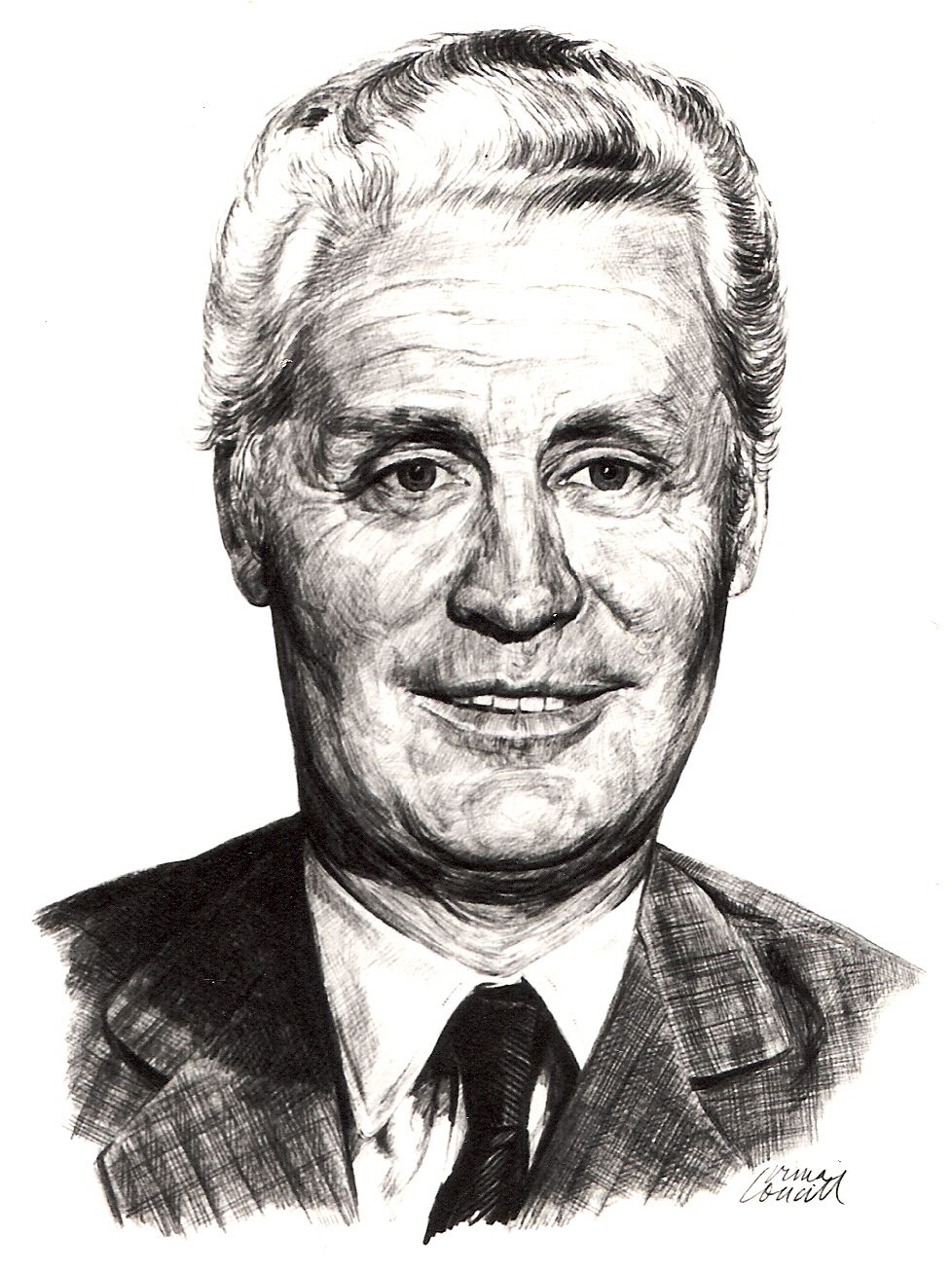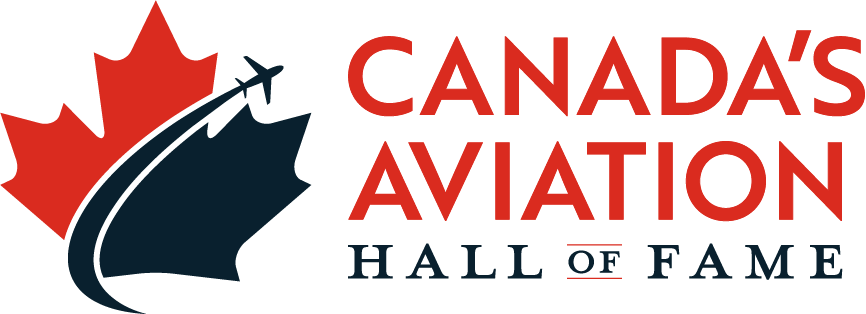Maxwell William Ward

Birth Date: November 22, 1921
Birthplace: Edmonton, Alberta
Death Date: November 2, 2020
Year Inducted: 1974
Awards: OC; LLD; The Billy Mitchell Award (INAC); The McKee Trophy; The Gordon R McGregor Trophy; The CD Howe Award
His lengthy and continuing efforts to responsibly service this nation's northern frontier by air, despite adversity, together with his development of a viable international charter service, have been of outstanding benefit to Canadian aviation
A Flying Career
Maxwell William 'Max' Ward, O.C., LL.D. (Hon), was born November 22,1921, in Edmonton, Alberta, where he was educated. He joined the Royal Canadian Air Force (RCAF) in 1940, received his pilot's wings and served as a commissioned flight instructor at various Canadian bases until 1945. He received his Commercial Pilot's Licence in 1945 and began his flying career when he was hired by Jack Moar as a bush pilot for Northern Flights Limited, operating from Peace River, Alberta, to Yellowknife, Northwest Territories.
Mining Exploration
In 1946 he organized his own air operation, Polaris Charter Company Limited, based in Yellowknife, with one single-engine aircraft, a de Havilland Fox Moth, hauling prospectors and supplies into the mining exploration camps.
Yellowknife Airways
In 1947 the Air Transport Board (ATB) made it necessary for every air carrier operating in Canada to obtain an ATB charter licence. Since he did not have a licence, Ward was advised by a Member of the ATB, J.P. Romeo Vachon, to form a partnership with a veteran bush pilot who already possessed a charter licence. In 1948 he and George Pigeon formed Yellowknife Airways on a 50-50 basis, each contributing one aircraft. Pigeon sold his portion of the company in 1949, forcing Ward to liquidate his share. In the fall of 1949, he left aviation to enter the home construction business in Lethbridge, Alberta.
Wardair Limited
Four years later Ward returned to Yellowknife with a newly-acquired de Havilland Otter and and a newly formed company, Wardair Limited, with a licence to operate a domestic charter service from that location. He bought a DH Beaver in 1954, and a second Otter in 1955, gradually expanding his operation by adding a new aircraft each year. In 1957 he purchased the company's first heavy aircraft, a Bristol Freighter. Using oversized tires, he and his pilots pioneered the air transport of heavy equipment into the far Arctic, and in May 1967, made the first landing of an aircraft on wheels at the geographic North Pole.
International Flights
In 1962 he introduced four-engined Douglas DC-6A freighter aircraft to high latitude operations, carrying heavy loads into semi-prepared landing strips. Ward received an ATB licence to operate international air charters, changed the corporate name to Wardair Canada Ltd., and opened an office in Edmonton. Despite numerous financial setbacks and governmental delays, he expanded his northern operation and commenced the first international overseas charter flight agency serving western Canada.
Aircraft and Bush Pilots
His airline became the third major Canadian carrier to operate pure jet aircraft in 1966, with the purchase of a Boeing 727, which he named Cy Becker. Two years later he added a Boeing 707 and christened it Punch Dickins. In 1969 he acquired another Boeing 707, named Wop May, and in 1973, a 452 passenger Boeing 747, and named it Phil Garratt. By 1973 his company was serving destinations in England, Europe, the Mediterranean countries, the Caribbean and Mexico, the United States, Hawaii, the Orient and the South Pacific Ocean islands, and had developed into Canada's largest international air charter carrier. Later aircraft in the fleet included four more Boeing 747's, three DC-10's, an Airbus A-300 and twelve Airbus A310's all named after Bush Pilots.
A Time to Remember
Wardair Canada established a reputation second to none anywhere in the world for efficient operations and top-rated service to the travelling public. But the 'Open Skies' concept came too late for Wardair Canada to continue. Years of delays in governmental decision making and bureaucratic obstacles, which prevented the company from developing to its full potential, caused Ward to consider his company's position. Rising costs and the prospect of deeper debt led to his decision to sell, and on May 2, 1989, the company was sold to the Pacific Western Airlines (PWA) Corporation, ending a brilliant chapter in the history of Canadian aviation.
Honours and Recognition
Ward's outstanding achievements brought him recognition and honours. He was presented with the Billy Mitchell Award by the International Northwest Aviation Council (INAC) in 1971, and the Trans-Canada (McKee) Trophy for 1973 for his contributions to this nation's air transport services. In 1975 he was made an Officer of the Order of Canada (O.C.) for his outstanding contribution to aviation and to the development of Canada's north. He received several Honorary Doctor of Laws degrees. The Gordon R. McGregor Trophy was awarded to him in 1979, and the C.D. Howe Award in 1991.
Max Ward's personal dedication, leadership and hard work were largely responsible for the success of Wardair. Through his enthusiasm and ability to inspire others, he created a team dedicated to the pursuit of excellence in every facet of the company's operations.
Maxwell William 'Max' Ward was inducted as a Member of Canada's Aviation Hall of Fame in 1974 at a ceremony held in Edmonton, Alberta.
To return to the Inductee Page, please click here.
